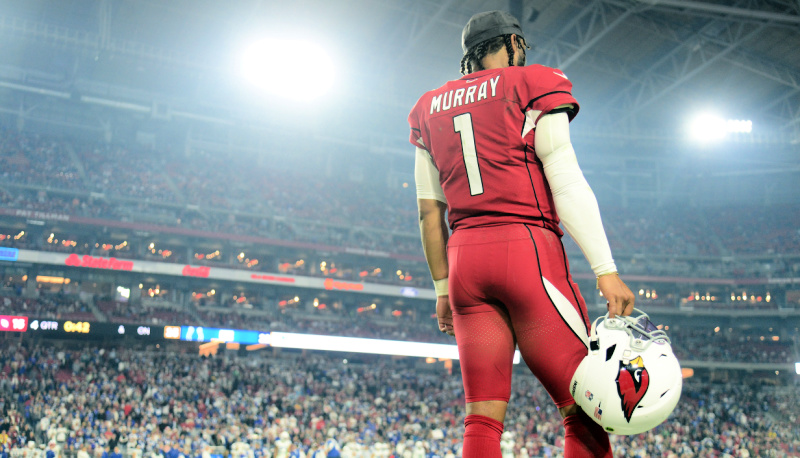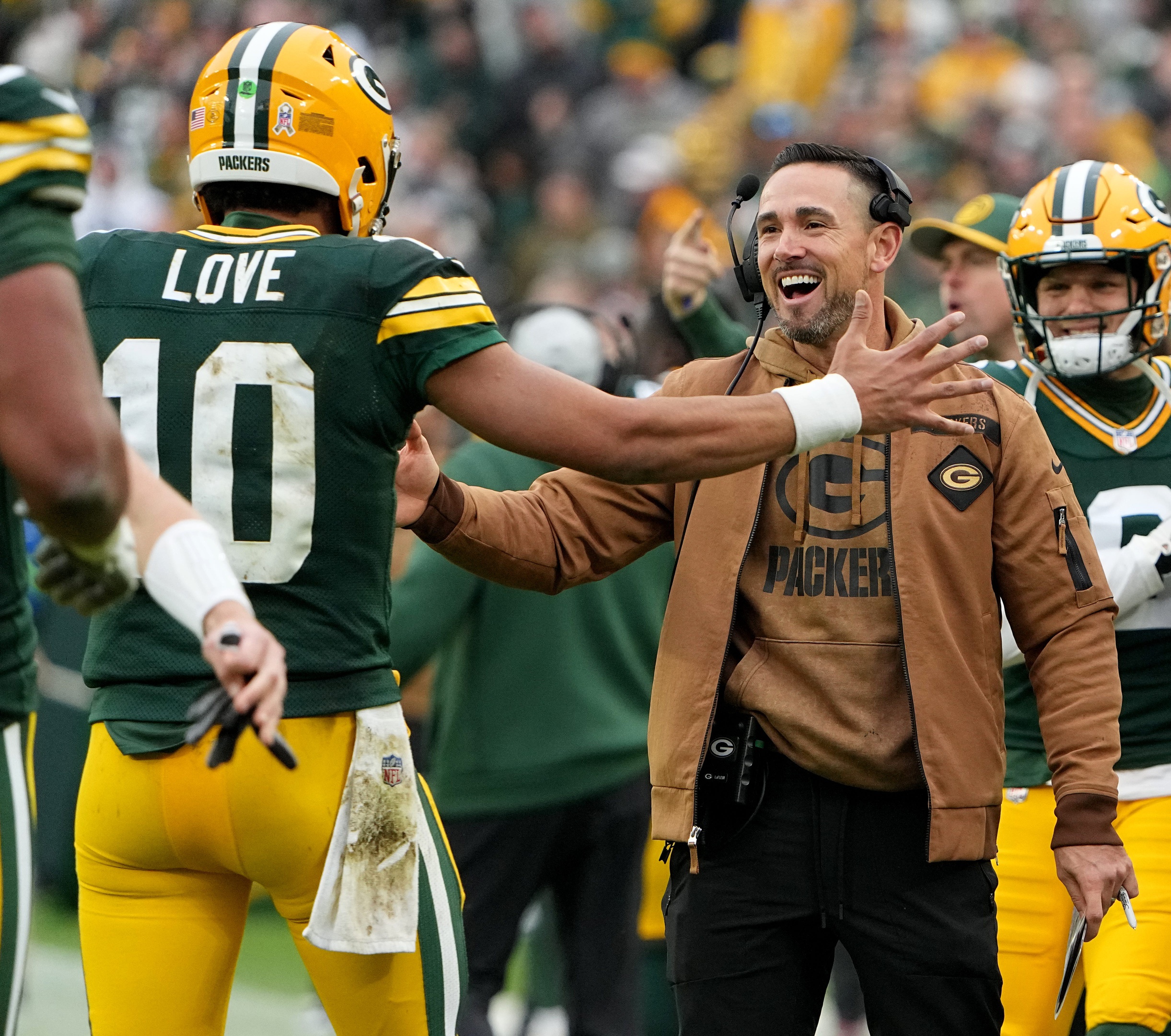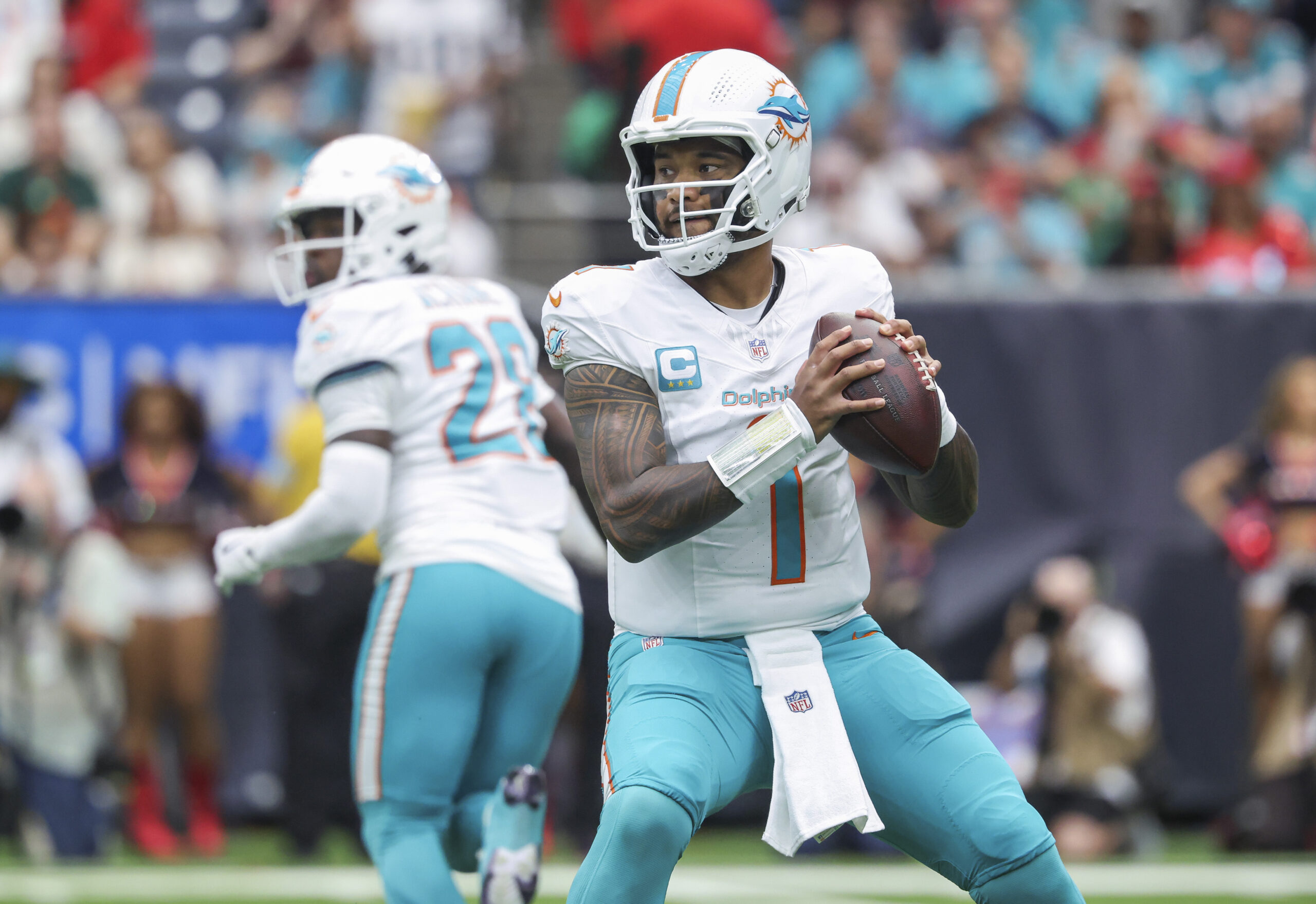Expert Analysis
3/1/22
6 min read
The Pros and Cons of Extending Kyler Murray

On Monday morning, Kyler Murray’s agent, Erik Burkhardt, released a statement on social media discussing the contract extension proposal they sent to the Cardinals. According to Burkhardt, the proposal “provides financial protection in line with the current QB market” and lowers Murray’s cap hits for the next two seasons. Clearly, Murray wants an extension and believes he deserves one. From the team’s perspective, however, there are arguments both for and against extending the former Heisman winning QB. Let’s start with the pros...
Pros
Surplus Value
The benefit of doing a deal early is that the team gets a discount on the APY in exchange for the player getting security. In essence, the team is shifting the burden of potential injury onto themselves, so the player must accept a slightly lower average in return. The issue though, according to Joe Banner, is that teams are over-compromising and giving the player an early extension without getting a favorable APY or guarantee in return. But if Arizona can get a lower APY by extending him early, it could be in the team’s best interest to take the deal.
Looming QB Contracts Could Reset The Market
Among other things, Aaron Rodgers and Lamar Jackson have two things in common: they are the last two players to win NFL MVP, and they will both be looking for new contracts this season. Rodgers recently denied the report that he wants $50M APY, calling it “categorically false.” As it stands, Rodgers has one year left on his deal (2023 is a void year) after renegotiating last offseason. His current cap hit is $46.66M, so his contract will surely be restructured if he is not extended.
Lamar Jackson is set to play 2022 under the Fifth-Year option ($23.1M) then will be an Unrestricted Free Agent in 2023. Of course, the Ravens would Franchise Tag him if they are unable to come to an agreement before then. Jackson is self-represented and also gets some help from his mother. The 2019 MVP missed 5 games in 2021, in addition to the week 14 game against Cleveland in which he injured his ankle.
Both Rodgers and Jackson could look to reset the QB market with the former being more likely to top Mahomes’ $45M APY. By extending Murray before the other QBs are able to reach agreements, the Cardinals could benefit. If they wait, they risk Murray and Burkhardt negotiating off of potential extensions for Rodgers and Jackson. Plus, as Joe Banner puts it, “deals done today will seem cheap in two years as the cap is leaping forward.”
Can they really do better?
Murray is only 24 and likely a top 8-12 quarterback. It’s hard to envision the Cardinals acquiring a better and younger option at QB than Kyler. Even if they were available, Rodgers and Russ are much older. Deshaun Watson is 26 and a better player, but trading Murray for him seems implausible given his legal issues. Murray is realistically Arizona’s best option, which makes appeasing him a good thing for the team. And Mike Tannenbaum notes that “once he’s locked into an extension, they can attack other areas of the team from a roster construction standpoint.”
Cons
Bad Precedent
It’s not wise to reward the agent’s behavior in going public. Likewise, Burkhardt’s decision to go public quickly is a terrible strategy. As Joe Banner notes, “the agent should try to get the team to work with them and get the deal done. If that fails, then the agent should use larger weapons. But we’re still in February and he fired his biggest weapon, which will alienate the team. You don’t want to piss them off too much too early.”
The other precedent issue is that if the Cardinals cater to Murray’s demands, will he use it against them in the future? That is, if he extends now, his contract could look team-friendly when new deals come and the cap jumps. At that point, is Murray going to demand a raise and hold out if the Cardinals don’t acquiesce?
Play Concerns
Over the last two seasons, Murray has struggled after returning from injury. Prior to spraining his ankle vs. Green Bay, Murray was completing a league-best 72.7% of his passes for 8.89 yards per attempt. After missing three games, Murray returned and only completed 65.3% of his passes for 6.72 yards per attempt. He has also struggled without DeAndre Hopkins, averaging 7.68 yards per attempt with the star WR and just 6.32 without him.
While Murray has improved, it hasn’t been to the extent you’d want prior to rewarding him with an extension. Per Banner, “he’s good, not great. His versatility helps, but I still think he’s probably between 8-12. If you pay him top 5, you’re going to be hard pressed to win the Super Bowl.” Likewise, if you wait on extending him, it gives the team an extra year to evaluate Kyler to determine if he is the guy in the long-term.
Dead Money
Dead Money for QBs has increased dramatically recently. By signing Murray now, the Cardinals risk incurring dead money if they decide to move on from him (for whatever reason) in a couple of years. Here are the largest QB Dead Money cap hit:
Top dead money QB cap hits of all time:
1. C. Wentz 2021 PHI—$33.8M
2. J. Goff 2021 LAR—$24.7M
3. M. Stafford 2021 DET—$19M
4. N. Foles 2020 JAX—$18.75M
5. R. Tannehill 2019 MIA—$18.42M
6. A. Luck 2019 IND—$18.4M
7. J. Russell 2010 OAK—$17.9M
8. T. Bridgewater 2021 CAR—$17M https://t.co/ZDyMNZx2E2— Nick Korte (@nickkorte) February 28, 2022
Verdict
Tannenbaum: Extending Kyler Murray is in the best interest of both parties. From Kyler’s standpoint—like Jared Goff, Carson Wentz, and Josh Allen—it gives the player much deserved security. From the Cardinal standpoint, while Murray hasn’t been perfect by any stretch, and he hasn’t shown the improvement that I’m sure they would like to see, he is still one of the 10 best quarterbacks on the planet. I would do everything I could to make the team successful around him as trying to find somebody better than him will prove to be very difficult.
Banner: Murray is good, not great. If you have a top tier quarterback who makes the whole team better, you should still be able to win if you pay him top dollar. Otherwise, you either have to pay less or you’re limiting the extent of your success. It would depend on the deal, but at his likely asking price, I would not extend. For $35M like Russ’s deal, it is a yes. But he’s not good enough to carry a team if you have to pay him $40M+.
In response to the agent’s letter, making a cap number cheaper now is a deferral, not a discount. You still have to make that up later. So, you have to be really confident in your roster and going all in for 2022 and 2023. You really want the cap numbers to be closer to even with slightly less in the early years.







